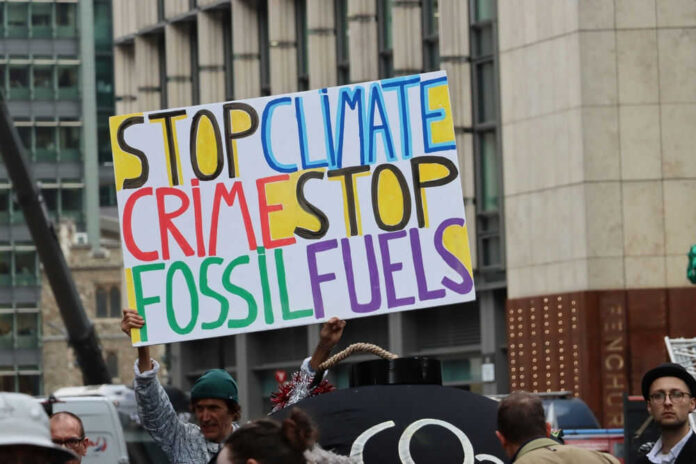
The Trump administration’s bold move to repeal a pivotal climate regulation has sparked a firestorm of protest by environmental wackos and will almost certainly face legal challenges.
At a Glance
- EPA proposes repealing the 2009 endangerment finding.
- The move aims to dismantle federal climate regulations and faces legal challenges.
- Repeal could significantly alter U.S. climate policy and regulatory landscape.
- Environmental groups and states are expected to challenge the repeal in court.
Trump Administration Targets Climate Regulation Core
The Environmental Protection Agency, guided by Administrator Lee Zeldin, has proposed a seismic shift in U.S. climate policy by seeking to repeal the 2009 endangerment finding.
This crucial finding, established during the Obama administration, has been the backbone of federal greenhouse gas regulation under the Clean Air Act. The repeal is positioned as the largest deregulatory action in American history, intending to free industries from economically burdensome regulations.
However, this move is not without controversy and is expected to face a barrage of legal challenges from environmental groups and several states.
For nearly two decades, the endangerment finding has served as the legal foundation to regulate emissions from vehicles, power plants, and other major sources of greenhouse gases.
Revoking this finding would not only dismantle existing climate regulations but could also prevent any future federal action on greenhouse gas emissions, significantly altering the trajectory of U.S. climate policy.
The proposal arrives amid the Trump administration’s broader agenda to roll back environmental protections, a move critics argue undermines public health and the scientific consensus on climate change.
The Legal and Political Battlefield
The proposal to repeal the endangerment finding is certain to ignite a legal and political battle. Critics, including environmental groups and former EPA officials, argue that the repeal undermines the scientific basis for climate action and endangers public health.
They are preparing for a protracted legal fight to challenge the repeal’s legality in court. States, particularly those led by Democratic governors, are expected to spearhead this legal battle, emphasizing the importance of maintaining federal climate protections.
Legal experts predict that any attempt to repeal the endangerment finding will face years of litigation. The Supreme Court’s prior rulings, affirming the EPA’s authority to regulate greenhouse gases, suggest that the path to dismantling this regulation will not be straightforward. Some industry groups express concern over the legal uncertainty the repeal could create, fearing it might lead to regulatory chaos and disrupt market stability.
Economic and Environmental Implications
The implications of repealing the endangerment finding are vast, affecting economic, environmental, and social spheres. Economically, while the repeal could reduce regulatory costs for industries, it also risks increasing public health costs and exacerbating climate-related damages.
In the short term, industries might experience regulatory uncertainty, potentially pausing or reversing investments in clean energy and emissions-reducing technologies.
Environmentally, the repeal could lead to increased pollution and climate risks, particularly impacting vulnerable populations. This move also undermines the U.S.’s position in global climate leadership, potentially reducing its influence in international climate negotiations.
Politically, the repeal intensifies the partisan conflict over climate policy, likely influencing upcoming election debates and shaping future legislative agendas.
A Future Shaped by Legal Battles
The Trump administration’s proposal to repeal the endangerment finding marks a pivotal moment in U.S. climate policy. As the proposal undergoes public review and faces inevitable legal challenges, the future of federal climate regulation hangs in the balance.
The outcome of this legal battle will have lasting implications, potentially reshaping the nation’s approach to climate change and environmental protections.
As the nation watches this drama unfold, the stakes are high, not just for the industries directly affected but for the broader fight against climate change.
The coming months will reveal whether the administration’s deregulatory ambitions can withstand the scrutiny of the courts and the fervent opposition from environmental advocates.



















